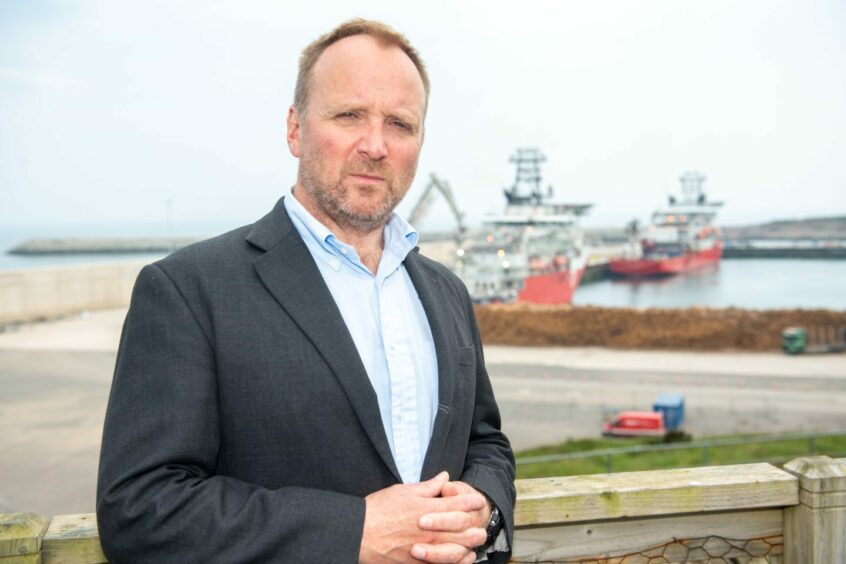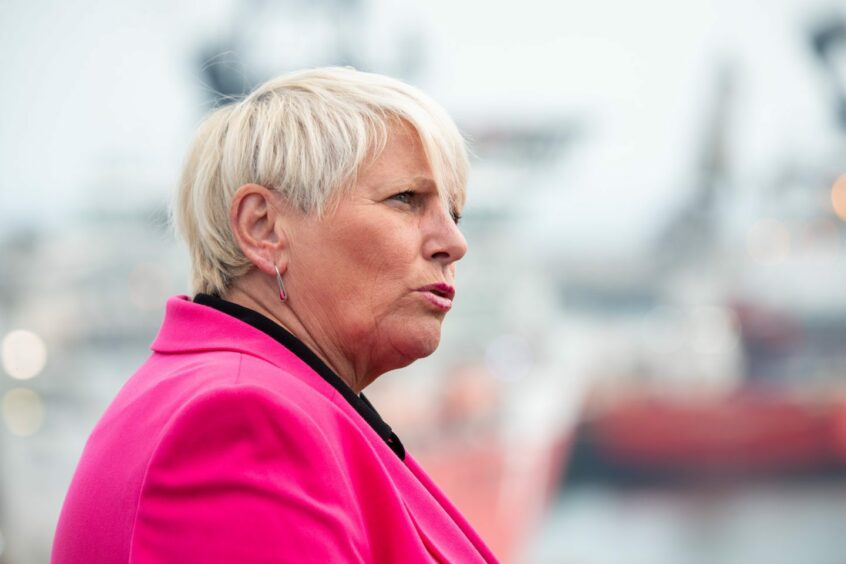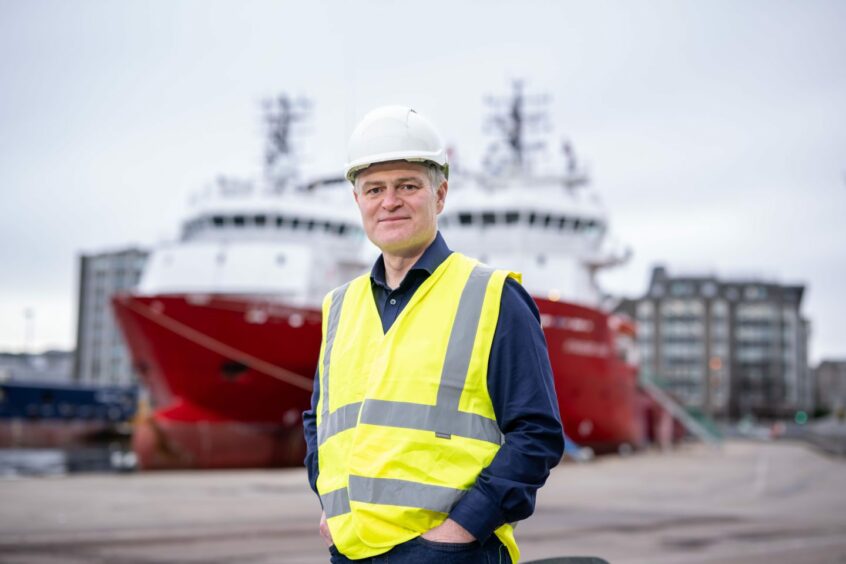
The head of the GMB warned of the perils of rapidly shutting down the oil and gas industry during a visit to Aberdeen on Monday.
Gary Smith, national secretary of the trade union, says it would be a “disaster” for the whole of the UK if North Sea production were forced off a “cliff edge”.
He was in the Granite City, alongside GMB Scotland senior organiser Louise Gilmour, for crunch talks with business leaders about the “importance of a managed transition” from oil and gas, to renewables.
During their visit the pair met with more than a dozen industry executives, including David Whitehouse, chief executive of trade body Offshore Energies UK (OEUK), and Russel Borthwick, head of Aberdeen & Grampian Chamber of Commerce (AGCC).
How to improve industrial relations was also high on the agenda, with the GMB pushing for a more influential role for unions in shaping North Sea strategy.
Speaking at Aberdeen’s South Harbour expansion project, Mr Smith said: “We have talked candidly about the fact that all the renewables jobs that have been promised haven’t materialised. What we need to try to work on is getting a plan in place for oil and gas.
“The GMB is very much against politicians just announcing bans – it is plans not bans for us. Oil and gas is going to be with us for many decades to come, and as well as being vital to the local economy, it is crucial to the UK economy, and sustaining skilled jobs.”
‘Where are the low carbon jobs?’
Mr Smith was one of several union figures to publicly criticise Labour’s recent announcement that it would halt future North Sea oil and gas exploration licences should the party come to power.
There is an expectation currently that Keir Starmer will lead the party to victory at the next election, expected in 2024, and consultancy Wood Mackenzie claims around £24 billion of spend on new energy projects will be at risk should that come to pass.
Mr Smith says North Sea workers have a right to be concerned by Labour’s stance, and is urging the party to listen to concerns.
He added: “Where are the new jobs? Where are the low carbon jobs? There are things starting to happen in hydrogen, but not quickly enough, and not at scale.
“In terms of renewables, the truth is the Scottish offshore wind industry has been built in China and Indonesia – it hasn’t been built here.
“There needs to be a strong worker voice and we want politicians, who make statements about closing down industries, to listen to them, and recognise the impact that’s going to have on their industry, on their jobs, on their families, and on their communities.”
For all the rhetoric there has been about green job creation in the UK, there is little to show for it, despite the dozens of turbines currently spinning offshore Scotland.
At the same time the energy industry is in the midst of a skills shortage, and fears are growing that there will not be enough people to deliver the energy transition.
Need to highlight the ‘pot of gold’
In order to address this, industry is in the process of developing a skills passport – that would allow workers to easily move between renewables and oil and gas – but it has hit a snag.
Ms Gilmour says things are now at “crisis point”, and if it doesn’t “move fast” then there will be “no long term future” for the energy sector.
She added: “For years we’ve not invested in our young people. There was a lot of talk today about apprenticeships and bringing the next generation through, but if you hear about what will happen to the industry without fresh licences; young people won’t want to come and work in Aberdeen if there’s no long term future for them.
“We really need more investment in our young people, to show them there is a pot of gold there.”
Giving workers the confidence to succeed
Mr Whitehouse said: “It was good to have Gary Smith and Louise Gilmore from GMB visiting Aberdeen today to meet industry leaders and discuss the future of the offshore energy industry.
“There is no simple choice between oil and gas and renewables, the reality is that we need both. The hardworking energy workers we have across the UK have the skills and expertise to get us to net zero and beyond, and we need to listen to them. We need a mix of energies and skills to drive the UK’s energy future and support decent jobs.
“Our world class supply chain is the platform for UK jobs. Oil and gas skills are required to decarbonise large portions of the UK economy from steel, cement, glass, chemical production to energy production. If we want to anchor jobs in the UK associated with wind, hydrogen and carbon storage, we need to support the domestic oil and gas sector and give our people the confidence and certainty they need to succeed.”
Recommended for you


 © Supplied by Image: Kami Thomson/
© Supplied by Image: Kami Thomson/ © Supplied by Image: Kami Thomson/
© Supplied by Image: Kami Thomson/ © Supplied by OEUK
© Supplied by OEUK